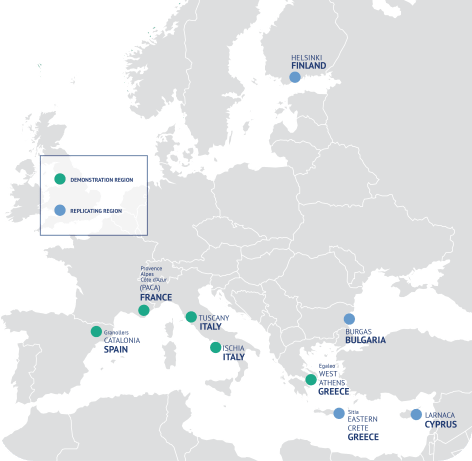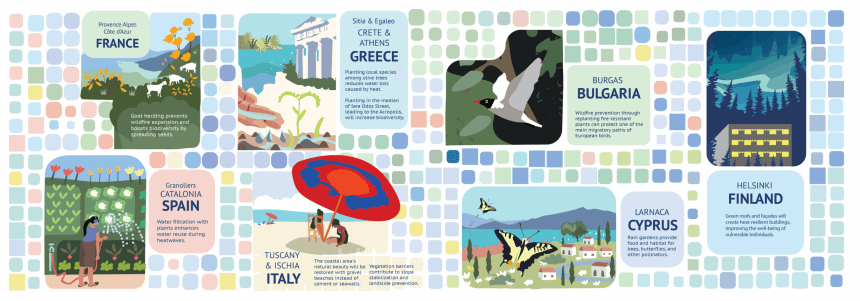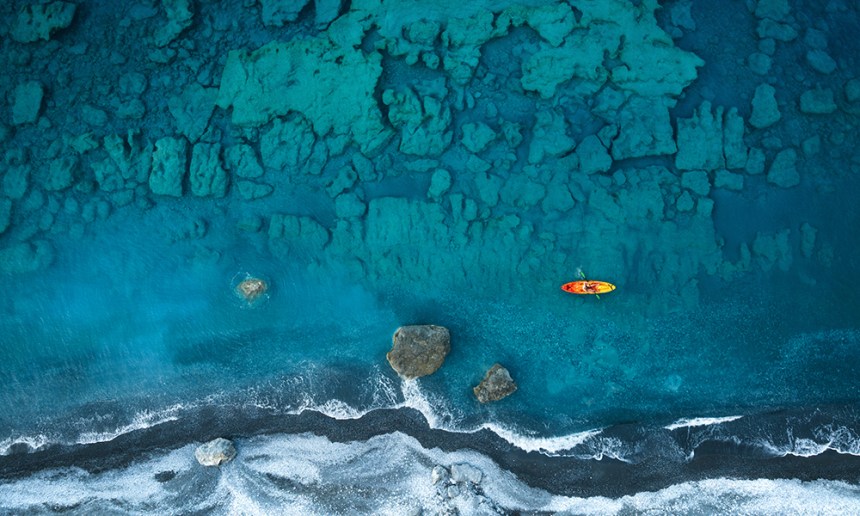Thanasis Sfetsos, Research Director at National Centre for Scientific Research “DEMOKRITOS”, explains how the innovative, circular project Med-IREN is building climate resilience in the mediterranean.
The Mediterranean region is on the frontline of the climate crisis. With rising temperatures, prolonged droughts, severe flooding, and wildfires becoming more frequent, communities, ecosystems, and critical infrastructure are increasingly exposed to climatic threats.
While economic growth in the Mediterranean has brought unprecedented development, it has also accelerated the climate crisis, exposing the limits of our linear take-make-dispose model of consumption.
Ensuring long-term prosperity within planetary boundaries means shifting this paradigm towards a circular economy that redefines how we create value, use resources, and interact with the natural world.
An economic shift like this calls for a rethinking of the way infrastructures are built and operated – and investment priorities are established – grounded in systems that mimic the regenerative capacity of nature.
One compelling argument for this is the use of Νature-based Solutions (NbS) which deliver both environmental and societal benefits.
The benefit of Nature-based Solutions

NbS means performing actions to protect, sustainably manage, and restore natural and modified ecosystems that address societal challenges effectively and adaptively to simultaneously benefit people and nature.
It could be restoring wetlands, greening urban infrastructures, protecting coastlines and on-shore critical facilities, or reintroducing biodiversity into urban and rural spaces.
Applying the principle of regeneration to the way we build and adapt our societies allows us to close loops, preserve resources, and strengthen infrastructure resilience against climate extremes.
With NbS we can help reduce our impact on nature and adapt to new climate realities. It provides us with essential ecosystem services, such as clean air, water, cooling, and improved well-being.
It’s central to circular economic strategies, especially in the context of climate adaptation – highlighting the potential of unlocking multiple co-benefits, from enhanced biodiversity to social cohesion and job creation, and outlining the critical steps needed to scale up investment and public awareness.
In doing so, NbS can be seen as both a practical and visionary approach for building resilient, circular, and future-ready economies.
To aid this shift away from a linear economy to a circular one, these innovative solutions must emerge as powerful and accepted tools that can help bridge environmental sustainability with societal resilience.
Rooted in the principles of ecosystem thinking, NbS offers holistic approaches to managing land, water, and natural resources, integrating conservation, restoration, and sustainable use in a way that benefits both people and the planet.
The Med-IREN project

As part of the EU Mission on Adaptation to Climate Change, the Med-IREN project, launched in 2024, is showing how circular thinking can be a cornerstone of climate action, transforming risk into resilience and nature into a partner in progress.
Working with nature and its natural processes, we can address diverse socio-environmental issues within climate change adaptation. All while still supporting a sustainable economy that aims to prevent climate-imposed damages and helps to avoid paying higher costs after an extreme event happens.
Instead of relying solely on traditional, resource-intensive methods to protect infrastructure, the Med-IREN project harnesses the regenerative power of nature.

With a focus on restoring wetlands, greening urban spaces and social infrastructures, enhancing coastal ecosystems, reducing wildfire risk with fire-resistant solutions, and integrating water-smart technologies, Med-IREN demonstrates how nature-based and circular design can reduce environmental risk while delivering social and economic value.
Currently piloted in five Mediterranean countries (Spain, France, Italy, Greece, and Cyprus), each of the regions were chosen for their diverse risk profiling and infrastructure type covering the majority of the climate risks in the region.
These demonstration sites serve as living laboratories where solutions like natural flood barriers, green corridors, and fire-resistant landscapes are tested in real-world conditions.
In Tuscany, Italy, local partners will add recycled gravel to their beaches to help protect the shore’s coastline by soaking up the force of the waves. Without something to absorb that energy, the coastline can slowly disappear.
Gravel helps slow this process down by taking the brunt of the wave impact. This in turn reduces the likelihood of flooding as it stops water from rushing inland during storms or high tides to protect buildings and roads near the beach.
The circular twist on this initiative is that they will be using items that are considered waste from the quarry production process. These local marble scraps will be recycled and strategically placed along the shoreline. This will then create a more natural coastal landscape instead of hard structures that can be an eyesore, such as a high wall.
This is an example of how NbS approaches can complement and enhance traditional ‘grey’ infrastructure in hybrid systems to deliver cost-effective, scalable, and resilient alternatives to conventional development whilst maintaining the beauty of nature.

As the project is at the beginning of its 4-year lifespan, over the coming years insights from these areas will inform replication in four other EU regions – including Cyprus, Bulgaria, and Finland – to prove that nature-inspired circular solutions can be tailored and scaled across diverse geographies.
However, as Med-IREN shows, it’s important to not only focus on infrastructure but on people and places.
The project emphasises collaboration with local communities, businesses, and public authorities to co-design interventions that are inclusive, equitable, and just.
By closing the loop between environmental restoration and societal resilience, Med-IREN creates a model where circularity is not only about resource efficiency, but also about protecting lives, livelihoods, and the landscapes we depend on.
NbS aligns seamlessly with the core principles of a circular economy: regenerating natural systems, designing out waste, and keeping value in circulation.
They not only restore ecosystems but also reimagine how we build, grow, and thrive to create a future where sustainability is embedded in every layer of society.
The post Circular solutions for climate change in the mediterranean appeared first on Circular Online.

